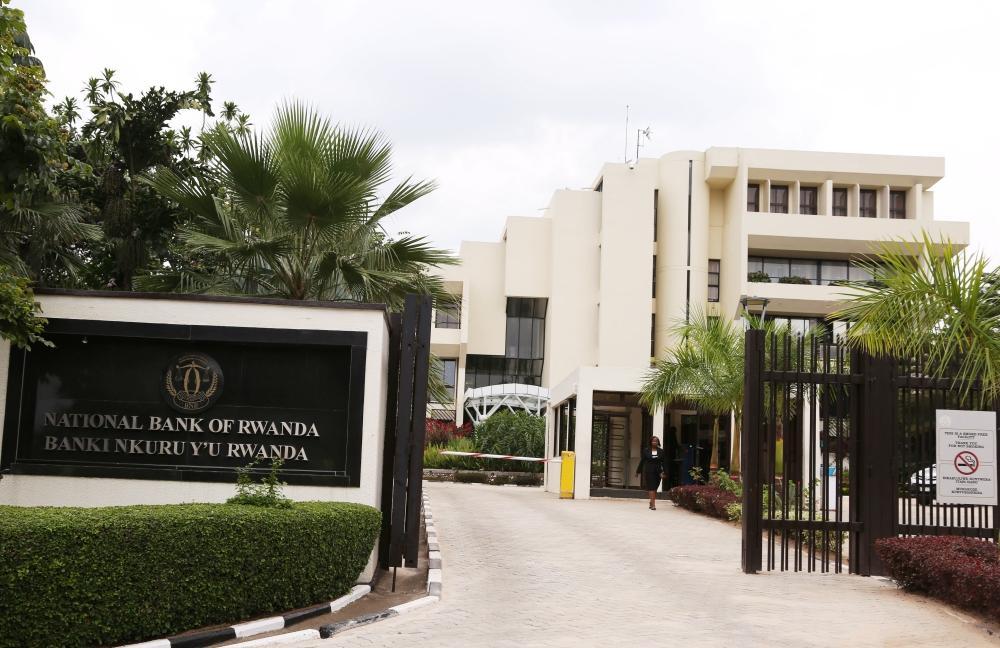Africa-Press – Rwanda. The National Bank of Rwanda (BNR) announced on August 1 that it is launching a retail Central Bank Digital Currency (CBDC) Ideathon, calling on individuals, fintechs, startups, and innovators to contribute ideas that could shape the future of a potential e-Franc-Rwandais.
An ideathon is an event where participants are given an opportunity to pitch their innovative ideas and solutions for new products or services to a panel of experts or judges.
The National Bank of #Rwanda is launching a Retail CBDC Ideathon to explore the future of digital currency for Rwanda!
This exciting event invites individuals, startups, fintechs, and innovators to collaborate, share ideas, and shape the potential e-Franc-Rwandais.
— Central Bank of Rwanda (@CentralBankRw) August 1, 2025
The publication of the call for participation is due on August 4, the registration of one’s interest through the MS forms link is planned until August 15, submission of final idea via email is expected until September 15, while the communication of selection of finalists for the Ideathon event until September 22, 2025.
Ideathon event with final presentations in front of a jury is planned on September 30.
Potential participants in the digital CBDC-related ideathon include financial institutions (regulated), payment services providers (PSPs), banks, non-deposit-taking financial institutions (NDFIs), and fintechs exploring in these spaces (not regulated yet), BNR indicated.
Organised in collaboration with Giesecke+Devrient (G+D), the Ideathon is part of the CBDC Proof-of-Concept (PoC) phase – one of five stages outlined by the International Monetary Fund (IMF) for developing a central bank digital currency.
The five stages are preparation, proof-of-concept, prototype, pilot, and production, in a progressive order.
The proof-of-concept phase involves conducting small-scale empirical tests and validation activities to gain insights into CBDC designs, typically in a laboratory environment, according to the International Monetary Fund (IMF).
BNR indicated that the PoC stage is designed to test the technical feasibility of use cases identified in a previous feasibility study. It will serve as a reality check, providing hands-on experience and guiding future directions for Rwanda’s digital currency initiative.
Ideathon overview
The Ideathon, officially launched on July 29, is a key step in the ongoing investigation into the potential benefits and risks of issuing a CBDC in Rwanda.
The event aims to engage local payment industry stakeholders, including individuals, startups, fintechs, and other innovators, to validate ideas and use cases that foster the adoption of the potential e-Franc-Rwandais.
The ideathon will serve as a platform to drive innovation, enhance competition, and encourage future user adoption of CBDC in Rwanda, BNR indicated.
Objectives the ideathon
BNR observed that as the financial sector stakeholders play a crucial role in a CBDC ecosystem, it aims to involve them as early as possible into the development journey of such a digital currency.
CBDC by nature is a digital public infrastructure, hence is a platform for innovation where the private sector can innovate on top of it and come up with creative use cases that brings value to end users of the potential e-Franc-Rwandais.
It added that this initiative aims to support Rwanda’s National Fintech Strategy (2024–2029) by fostering innovation and competition in the digital finance ecosystem.
Focus areas: the four sweet spots
The feasibility study identified four major “sweet spots” – namely, increase resilience [of financial systems], improve innovation and competition, cashless economy, and cross-border remittances – that hold significant potential for the country.
These sweet spots were selected from a comprehensive analysis of 15 identified opportunities, which were objectively ranked based on their potential benefits to Rwandan society. The evaluation process ensured that the selected sweet spots align with the nation’s priorities and address key areas of CBDC opportunities.
Building on the findings of the feasibility study, the POC project aims to gain practical, hands-on experience in these four sweet spots.
By testing and validating the concepts outlined in the study, the POC will provide valuable insights into the technical feasibility and real-world applicability of these opportunities, BNR stated, adding that this phase is critical for assessing how the proposed solutions can be implemented effectively, sustainably, and securely while engaging all stakeholders,
Expected outcome
Participants will pitch their ideas to the jury, with selected use cases potentially developed in a future pilot project.
Meanwhile, BNR specified that the ideathon will not involve programming, stating that its focus will be on presenting innovative concepts.
Winning criteria
Winning criteria include that an innovation addresses one of the four sweet spots, solves a specific problem in the payments or financial services market in Rwanda – in line with being fit to challenge; how understandable is the idea, how compelling are the unique selling points, and how scalable it is in line with the clarity of the solution.
They also feature how it is technically feasible with the current technology, and how its implementation might look like, and how novel the solution is, including whether it is distinct from other offerings on the market.
BNR clarified that it did not make any decision yet whether or not to issue a CBDC in Rwanda but is in the process of studying technical, legal and other key components of its feasibility.
For More News And Analysis About Rwanda Follow Africa-Press






